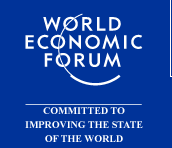
Eliminating domestic energy subsidies is tricky, but oil-exporting countries that do so will see a clear payoff
AS oil prices have risen in recent years, governments in oil-producing countries have faced a hard choice: should they allow domestic subsidies to rise to keep fuel affordable for their citizens—or reduce and even eliminate subsidies and allow market forces to play out? Already, some oil-producing countries, such as the Islamic Republic of Iran, have taken steps toward removing domestic subsidies.
By choosing to allow domestic energy prices to rise to their international level, policymakers in oil-producing countries could discourage wasteful consumption and earn additional revenues from profitable oil and gas exports. The government could then redistribute most of the additional revenue collected from the price increase through an oil dividend, which would buy public support for the price increase.
See full
Article.







































